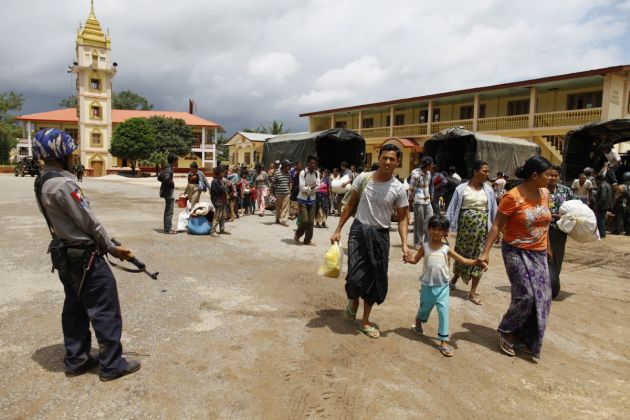Asian autorities failure to act on hate crimes fuels uptick, says rights' group

Hate crime targeting minorities in Asia are commonplace due to a lack of attention given to them by governments in the region, a human rights advocacy group says.
In its annual State of the World's Minorities and Indigenous Peoples 2014, Minority Rights Group International (MRG) is worried about the prevailing trend of vilification and hostility against minorities.
The problems flourish due to the inaction of governments against hate crime and hate speech, the MRG said.
"Hate crimes have been able to flourish in Asia largely as a result of the complicity or support of politicians who stand to gain from the persecution of minorities,"
MRG executive director Mark Lattimer said. "Hate speech goes unchallenged and crimes are often under-acknowledged and under-reported, enabling perpetrators to operate with impunity."
Analyzing the policies of governments across the region, the MRG found that many Asian countries lack laws covering hate speech or hate crime.
Instead, countries rely on blasphemy and criminal defamation laws, which the group says are more often used to quell political dissent.
In South Asia, political transitions in 2013 played a role in the prevalence of hate crimes. For instance, inflammatory language was used among other tools in the run-up to the general elections in India.
Hindu minorities in Bangladesh were targeted by the Muslim majority as the national elections were held in the midst of violent protests against the proceedings of the International Crime Tribunal.
Buddhists nationalists in Sri Lanka stepped up their vocal hate campaign against the Muslim minority there. Its government has done little to prevent this, the group said.
In Southeast Asia, minority groups were used to foment prejudicial political agendas.
In Cambodia, the political opposition utilized anti-Vietnamese invectives to discredit Prime Minister Hun Sen, while yellow-shirt protesters in Thailand fostered anti-Cambodian sentiments.
Malaysian Prime Minister Najib Razak said the wave of Chinese immigrants there caused the electoral loss of his party in May 2013.
The MRG also highlighted the situation of Rohingya Muslims in Myanmar, who has been a target of Buddhist mobs since the military junta paved the way for a slow transition to democracy.